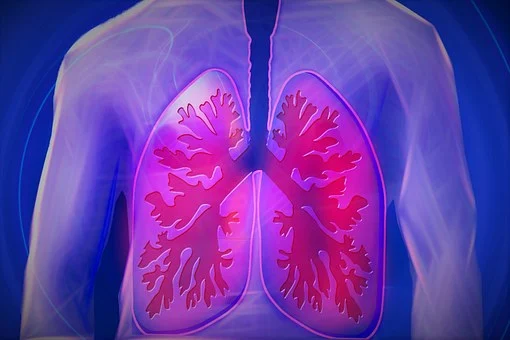What is Lungs Health?
Lung health refers to the state of well-being of the lungs, which involves maintaining the proper functioning of the lungs and preserving their capacity to perform their essential role in the respiratory system. The lungs are the primary organs responsible for breathing and oxygen exchange in the body.
Maintaining good lung health involves several habits and practices, including:
- Avoiding smoking: Smoking is the leading cause of lung disease, including lung cancer, chronic bronchitis, and emphysema. Avoiding smoking and second-hand smoke exposure is vital for maintaining good lung health.
- Reducing exposure to pollutants: Exposure to pollutants, such as air pollution, can damage the lungs and lead to respiratory problems. Reducing exposure to pollutants can help to maintain good lung health.
- Regular exercise: Regular exercise can improve lung function and capacity, strengthen respiratory muscles, and improve overall cardiovascular health.
- Practicing good hygiene: Regular handwashing can help to prevent respiratory infections that can damage the lungs.
- Getting vaccinated: Vaccinations can help to protect against several respiratory infections, such as influenza and pneumococcal disease.
- Avoiding respiratory irritants: Avoiding exposure to respiratory irritants, such as dust and chemicals, can help to prevent lung damage and respiratory problems.
- Maintaining a healthy diet: A healthy diet can help to maintain good overall health, which is essential for maintaining good lung health.
By following these practices, individuals can maintain good lung health, prevent respiratory problems, and reduce their risk of developing lung disease. Regular medical checkups and screenings can also help to detect any potential problems early on and prevent complications.
Define Lungs Health.
Lung health refers to the state of well-being of the lungs, which involves maintaining the proper functioning of the lungs and preserving their capacity to perform their essential role in the respiratory system. The lungs are the primary organs responsible for breathing and oxygen exchange in the body. Maintaining good lung health involves several habits and practices, including avoiding smoking, reducing exposure to pollutants, regular exercise, practicing good hygiene, getting vaccinated, avoiding respiratory irritants, and maintaining a healthy diet. By following these practices, individuals can maintain good lung health, prevent respiratory problems, and reduce their risk of developing lung disease. Regular medical checkups and screenings can also help to detect any potential problems early on and prevent complications.
How to Make Lungs Strong?
Here are some tips to help make your lungs strong and healthy:
- Avoid smoking: Smoking is the leading cause of lung disease and can damage the lungs irreparably. Quitting smoking is vital for maintaining good lung health.
- Reduce exposure to pollutants: Air pollution and other pollutants can damage the lungs and lead to respiratory problems. Reducing exposure to pollutants can help to maintain good lung health.
- Regular exercise: Regular exercise can improve lung function and capacity, strengthen respiratory muscles, and improve overall cardiovascular health.
- Practicing good hygiene: Regular handwashing can help to prevent respiratory infections that can damage the lungs.
- Get vaccinated: Vaccinations can help to protect against several respiratory infections, such as influenza and pneumococcal disease.
- Avoid respiratory irritants: Avoiding exposure to respiratory irritants, such as dust and chemicals, can help to prevent lung damage and respiratory problems.
- Maintain a healthy diet: A healthy diet can help to maintain good overall health, which is essential for maintaining good lung health.
- Breathing exercises: Breathing exercises, such as deep breathing and diaphragmatic breathing, can help to strengthen the lungs and improve lung capacity.
By following these tips, you can help to keep your lungs strong and healthy, reduce your risk of developing lung disease, and improve your overall quality of life. It is also essential to receive regular medical checkups and screenings to detect any potential problems early on and prevent complications.
